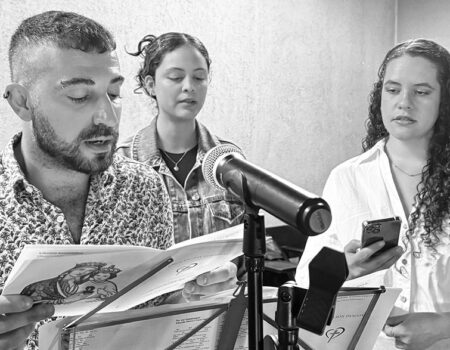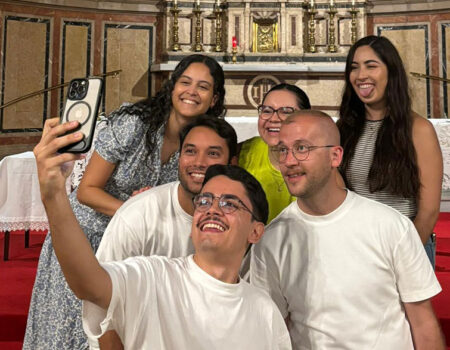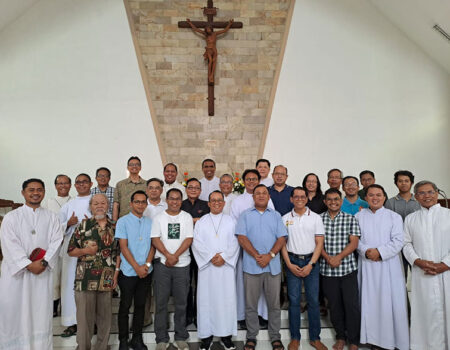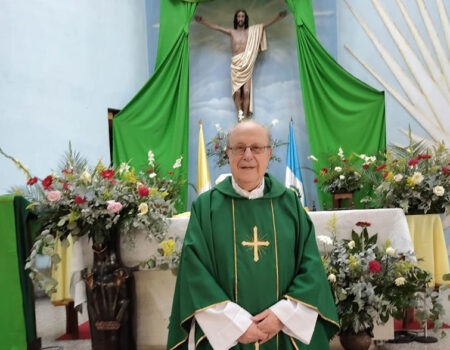Chevalier Family: The Vocation of the Laity of the Chevalier Family
Sunday March 30, 2025
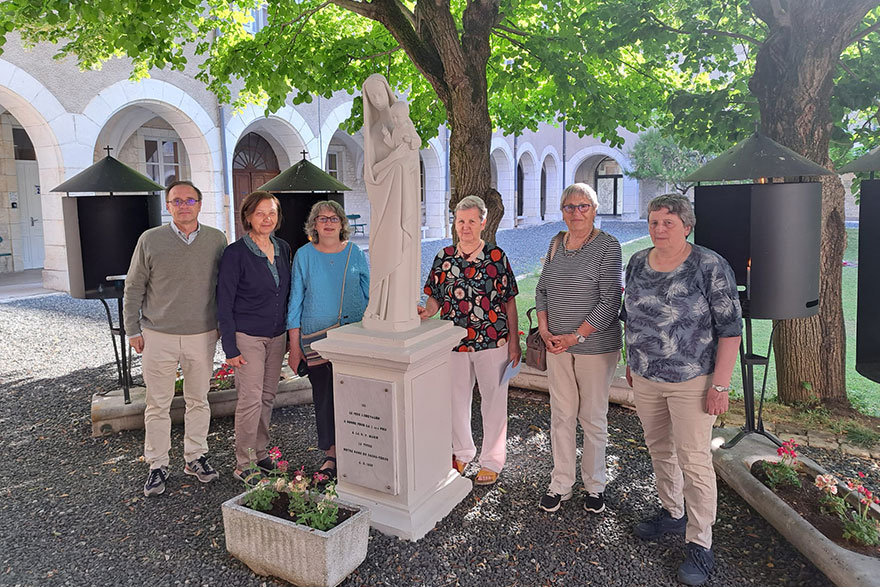
From Fr. Chevalier’s time, there has been an understanding that the laity is a part of the Chevalier Family with their distinctive spirituality and Vocation.
We are one of three branches. Chevalier always spoke of a shared mission with close collaboration between religious men and women and lay members, and the mission was the same for us all: ‘to make the Sacred Heart of Jesus known and loved everywhere.’ For the laity, we are called to; ‘remain in our families, to carry out the duties of our state of life, to retain freedom of activity in the world, and to imitate the virtues of the Heart of Jesus.’ pp 82, Jules Chevalier’s Charism and the Identity of the Chevalier Family – H Kwakmann msc.
And so, from the beginning we had our own Vocational call, our place in the shared mission and our way of living our call and commitment. This has not always been fully understood or realised by all members of the family, including the laity.
Chevalier reminded professed members, especially those with leadership functions, that the relationship between religious and laity ‘ is based on humility and bound together by love It keeps as far from itself any suggestions of haughty command or ambitious intrigue. There is no place in it for inequality of rank. The Vocation of the laity is all the more useful in that it does not give rise to mistrust in an anticlerical world. pp 82 – 83 Kwakmann.
We are seeking to find the empowerment and the courage and the commitment to step into our Vocation and to fully participate alongside our Religious brothers and sisters in our shared mission.
I have been thinking recently that the Last Supper is a wonderful metaphor for the Vocation of the Laity. At the Last Supper, the genesis of our Eucharistic understanding, Jesus took the most humble of human events, a meal shared between people bound by the bonds of love and commitment, a family meal, a meal not in a palace but it seems in a simple upper room. We don’t know who cooked the meal; we don’t know what they ate, except that they shared a common dish as was the custom. At the table, discussions took place about past and impending events; family divisions arose, and special bonds of love were present. It could be said that Jesus took the basics of human activities and elevated them to reveal the sacred mysteries. We have focused much on the sacramental aspects of that shared meal – but perhaps it could also be seen as the institution of the Vocation of the Laity. We draw life from the sacraments so that we can exercise our Vocation in a different way to religious. Our Vocation is exercised through the undertaking of the basic human activities required to sustain life.
· We are called to earn the money we need to support our families by engaging directly with the secular world …
· We are called to live in family groups, not religious communities …
· We are called to be intimate in different ways to Religious …
· And much, much more …
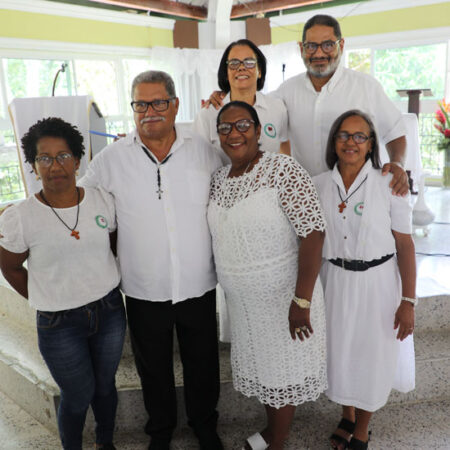
And these responsibilities and the callings of the lay life are not impediments to our living the Charism; they are the actual and real way we live our Vocation – through dirty dishes and adolescent rebellion, through long working hours and cleaning dirty floors.
We exercise the sacred mysteries and break bread and feed and nourish those who are hungry at our kitchen tables … And that is how we most fully participate in ‘making the Sacred Heart of Jesus Known and Loved Everywhere.
Within the Chevalier Family, significant developments have been made in the structures that support the emerging understanding of the Vocation of Laity.
You are all aware that we have had an International Council of the Laity for the last seven years, with members being appointed at the Assemblies of Laity. This Council and the previous are working hard to encourage an understanding amongst laity and religious of our distinctiveness. To promote this understanding, the International Council has:
· Developed a website that contains writings on Spirituality by the laity
· Our annual magazine, Encounter of Hearts, includes much information about our organisation and our spirituality
· The ongoing organisational structures we are developing, currently, the role of Regional Coordinators
· Our partnering with the Chevalier Family Justice, Peace and Integrity of Creation committee
· Our regular meetings with the Trigeneralate.
· Our work to develop a network of relationships around the globe.
What are we asking of Religious?
We ask that you walk alongside us as we develop and deepen our self-understanding. We have worked with the Trigeneralate members of the International Council to develop this Vision Statement. It is a beginning point, and we hope you will reflect on it and work towards making it a reality in your places:
· We envision the Chevalier Family having three branches (only two are currently operational): the Religious and the Laity.
· We envision a laity that is deeply formed in Spirituality of the Heart through the lens of their family of origin (FDNSC, MSC sisters, and MSC men) and who recognise and celebrate their unity in diversity.
· We hope this understanding of lay charisma could be a gift to the Chevalier family, where traditional divisions and differences are less important than our shared mission.
· We recognise that the formation of the laity into this expansive vision is a work in progress, and as an ideal but not yet a reality, it is the responsibility of the laity to form new members and engage in ongoing formation. Currently, in many places, it is still essential and desirable for all formation to be offered by Spiritual Companions.
· We ask that formation of religious into this expansive vision be a role that the Religious Congregations assume.
· We further ask, that formation of Spiritual Companions rather than Spiritual Directors be undertaken by the Congregations so that this role comes to be seen as a key role within Provinces, ideally offered to younger members who have a passion for the laity and a capacity to form mature faith groups who are aware of their key role to contribute to the shared mission.
What are we asking of ourselves as Laity?
We are seeking to find the empowerment and the courage and the commitment to step into our Vocation and to fully participate alongside our Religious brothers and sisters in our shared mission.
We thank you for accompanying us on this journey. God bless.
Alison McKenzie


